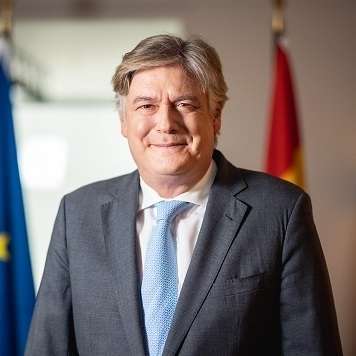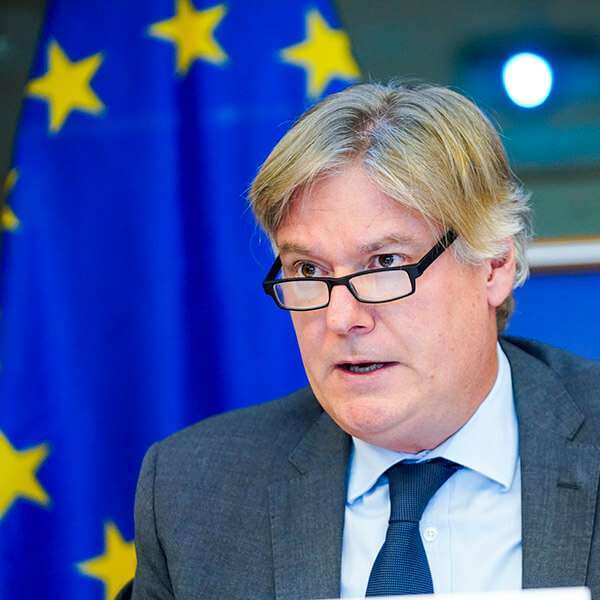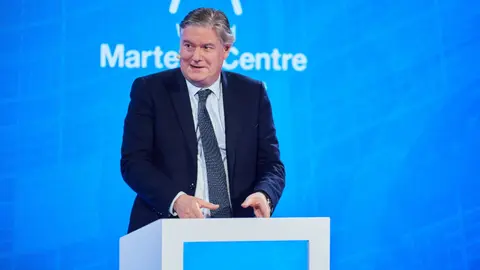Pedro Sánchez has left Spain's foreign policy at a minimum level

Antonio López Istúriz, MEP for the Partido Popular, spoke to the microphones of "De Cara al Mundo" in the studios of Onda Madrid as a politician and expert in international politics to explain the consequences that Spain's foreign policy could suffer after what happened in the European Parliament on the day that Pedro Sánchez Castejón ended his term of office as rotating President of the European Union.
Mr López Istúriz, the historic decision on the enlargement of the European Union (EU) is also a litmus test for the EU itself in view of the situation in Ukraine and, above all, in Moldova.
We cannot allow the division in these countries, even though there is a minimal part of their population that wants to join Russia. At the same time, there is the vast majority who want to join the European Union, our democratic values and our values of freedom. Giving positive signals that Europe wants to count on them, that those who want to be part of our "island of democracy and freedom" that we have, because we are surrounded by many conflicts and very complicated situations in the geostrategic field, really makes these kinds of signals very positive.
Undoubtedly, we are having the problem that Hungary still does not want to support the opening of the aid package to Ukraine in the war against Russia, but the opening of negotiations is a very positive sign. The countries of the Western Balkans have historically been problematic for Europe in the past, provoking the outbreak of the First World War. A signal to these countries must be necessary, but they must still be required to meet entry requirements, as will be the case for Ukraine and Moldova. There will be no exceptions, they must meet the same requirements as any country joining the European Union.

Mr López Istúriz, you were at that session where the President of the Spanish Government gave an account of the six months of the European Presidency. It was a very controversial session with a guest such as Mr Puigdemont, who contaminated the entire session. You only had to see Pedro Sánchez's face when Mr Puigdemont took the floor next to him.
I have been in the European Parliament for 20 years, so I have a certain amount of experience under my belt. I invite our readers to find photographs or videos of scenarios similar to what we experienced the other day. A Prime Minister, the President of the Government of a Member State, who comes to present the conclusions of the Presidency, dedicates himself from the very first minute "to beating up on everyone, on all the opposition in the European Parliament. This is unheard of". It is normal and logical that in these debates MEPs, from different groups, of different nationalities, even talk about national issues, but throughout all these years, no prime minister or president has ever gone into these issues, but rather talked about the rotating presidency of the EU itself.
In the end, Sánchez managed to get a video of two thirds of the parliament booing him on his way out, and there is a video of this, which is not shown in Spain. But of course, they are not booing the President of the Government, they are not booing Pedro Sánchez. They are booing the rotating president of the European Union, who represents Spain. Creating division, booing, applause on the other hand, he has brought division, he tried to bring division to the European Parliament. This is unheard of.
A partisan issue, isn't it?
Absolutely.
The Germans have responded well, and if I may say so, the photo of the President of the European Commission, Ursula Von der Layen, with Mr Alberto Núñez Feijoo, President of the People's Party, has great significance, doesn't it?
Recriminating the Third Reich to a German politician, who is always denying it and trying to apologise for it, always alluding to that past that they do not want to repeat, that they feel ashamed of... "so that a small-minded person can come and throw it in their face simply to provoke them, which is the only thing they want to do". Pedro Sánchez's intervention has left Spain's foreign policy at minimum levels.
What was predicted by our spokesman for the Group of the European People's Party, Mr Sánchez, will have little to do in the forthcoming negotiations in the European institutions, because what he has done has no name. Let us remember that, in the past, Scholz, who was a candidate for German Socialist Chancellor, was very expensive to Berlusconi for his "joke" about Berlusconi calling him a concentration camp kapo. This episode, which is extremely insulting for the Germans, has not been closed.

When it comes to diplomacy, Mr López Istúriz, you have to be very careful with form and language. We have also experienced this in Israel and at the Rafah post, where the day after being closely tied to a paper that Mr Sánchez was reading with Netanyahu and Mr Herzog, the President of Israel, then the next day at the Rafah post he spoke of indiscriminate killings, of recognising the Palestinian State on his own. These kinds of mistakes not only mark Mr. Sánchez, but also Spain's interests.
This is the end of the Spanish presidency, which, if there is no agreement with Hungary, and no progress has been made on migration, "all that hype" months ago that the Spanish presidency was going to change the European Union, that no one would recognise it, in the end nothing, because even now the German chancellor, however socialist he may be, after Sánchez's insult and harassment of our German spokesman, is obviously not going to help him in any way.
That is written in European analyses. Europe is consensus. Europe is not division. Europe tries, of course, in the European Parliament and in the European institutions, that, unfortunately, the polarisation that is detected in national policies does not reach Brussels. Sánchez's attempt at polarisation in the European Parliament is going to cost him dearly.
You, as a man from Navarre. I will not tell you, then, what has happened in Pamplona City Council to avoid this polarisation, but it is another milestone.
Furthermore, Otegui has taken the liberty of saying that Navarre is part of the Basque Country, where he is obviously going to find us people from Navarre, who are proud of being so, totally against it, and we are going to work hard to reverse this situation. In the coming weeks, logically, the Partido Popular will make its decisions, as will the UPN and the Unión de Pueblo Navarro, but it is clear that we are facing a tremendous situation with Bildu in the Pamplona mayor's office. This cannot be allowed and we must, democratically, in whatever way we can, change and reverse this situation.
Above all, because a few weeks ago they were saying no, and suddenly they are saying yes.
This is not surprising because this is what we are used to. There are many leaders of the European Union with whom I speak regularly, in my reason of my former secretary general of the European People's Party, and not only leaders of the European People's Party, but also with socialist leaders who cannot negotiate with Sánchez because he has deceived them all or has tried to deceive them. It is an incredible thing about the character. In Spain we are used to it and one would even say that it seems to be as if everyone already takes him for granted. Even Rufián and all his colleagues took him for granted when they told him in the Congress of Deputies that they would keep an eye on him, or Puigdemont in the European Parliament, because they know he is going to try to deceive them.
In Europe things work differently, and in those negotiations you need to be credible. And Sánchez is not. He is going to have a very difficult time in the coming months in the European Union because this type of action, like what he did in the European Parliament, is not to the liking of the Popular Party, the Socialists, the Greens, the Conservatives or anyone else.









